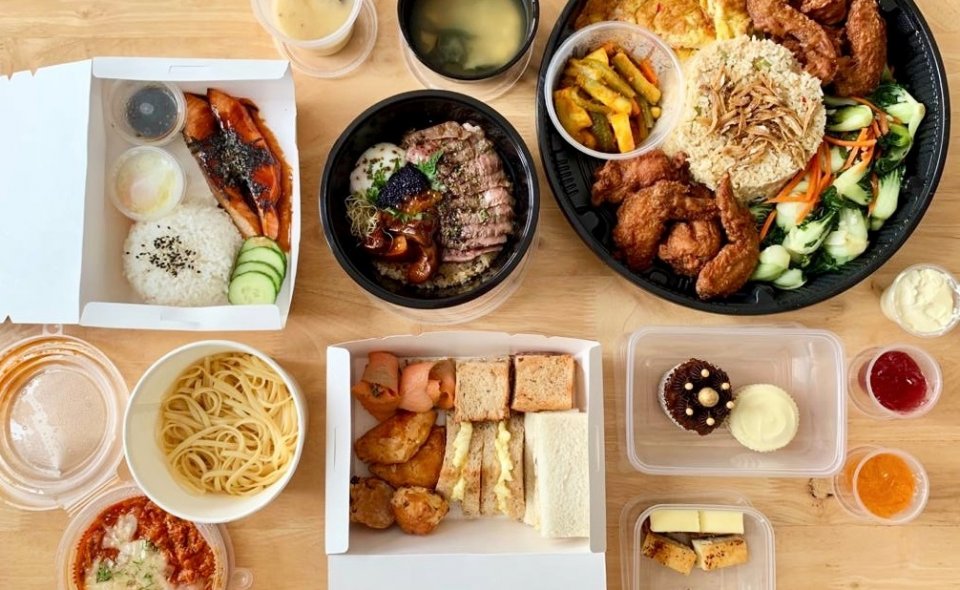Manyplaces, SG Dabao and Dine In Movement. These are just some of the names that have popped into the food delivery platform space recently.
Most, if not all, have arisen out of pure practicality due to Singapore’s ongoing circuit breaker measures. But they have also sprung up out of a desire to help keep the F&B industry here alive—hailing the #savefnbsg movement, if you will.
To be clear, the aforementioned platforms are no more than restaurant listing sites, offering an online directory (some with more features than others, like a map or search function) for F&B venues to list their delivery and/or takeaway services.
Unlike current frontrunners GrabFood, Deliveroo and Foodpanda (also WhyQ), they don’t operate a fleet of delivery riders, don’t take commission of any sort, and therefore warrant no service fees. Any delivery charge is decided by the vendors themselves.
Dine In Movement for instance simply leads you directly to the merchant’s site, some of whom fulfill the deliveries using their own staff. Some others rely on freelancers or third party last-mile delivery services like Lalamove.
Then there are other new food delivery platforms like Hawker Food Delivery and FoodHood, that charge a minimal service fee to cover operational costs, but offers more than just a venue listing.
Hawker Food Delivery for instance lets you order from multiple stalls within the same hawker centre in a single transaction. In a sense, they represent hawker centres rather than individual stalls, allowing for a more democratic and varied approach.
FoodHood offers that same ease, but gathers together a neighbourhood (thus the name) for your ordering convenience rather than a hawker centre. Currently, only the Jalan Besar ‘hood has been made available.
Both Hawker Food Delivery and FoodHood don’t have their own delivery fleet either. They work with freelancers or utilise third party companies to fulfill their orders.
Meanwhile, old-timers like Chope have had to pivot their table reservations business into a delivery platform as well. They took a more direct approach, throwing their hat into the ring alongside SMRT cabbies to complete the delivery piece of the puzzle.

Delivery food items from F&B group Refinery Concepts
Supposedly, this aids the beleaguered taxi sector while also helping the onboarded restaurants. An added bonus to using Chope’s platform (compared to the big three) is that they allow bundled ordering from several restaurants from the same F&B group at once.
And speaking of taxis, none other than ComfortDelGro and their fleet of unmistakably blue (mostly) taxis have also entered the fray with ComfortDelivery. It’s a purely B2B service however (meaning customers don’t order from Comfort but from the restaurants themselves), allowing F&B owners the option of engaging taxi uncles as their delivery provider of choice.
Meanwhile, some online platforms have taken a more unorthodox approach. Take Take.sg, a self-proclaimed community-driven WhatsApp order form that takes out the hassle of onboarding—which may involve fees, learning new software and even installing on-premise hardware—for merchants.
Vendors need only use chat service WhatsApp for their orders. The Take.sg site simply lists your business and lets you build a menu order form that helps generate people’s order into a text-friendly manner. The added benefit is that the merchants can then directly communicate with the end-consumer where needed via chat.
This is especially helpful for hawker stall owners who operate by themselves and have no time to be fiddling with new technology. For less tech-savvy food operators, this can mean a huge difference. It’s like the WhatsApp version of what Facebook group Hawkers United – Dabao 2020 is trying to achieve.
And that’s not all. Relying on the good ol’ spreadsheet is an initiative by Allied Foodservice Equipment. They’re essentially also offering a listing like Manyplaces, SG Dabao and Dine In Movement, but in the cloud on Google Sheets. Vendors can email to [email protected] to have themselves included.
Adjacent to all these platforms is Cocktail Go Where. Started not by anyone in the bar industry but by an avid goer of cocktail bars, it helps the other half of the F&B industry that’s seemingly getting less aid and awareness right now.
Rather than list meal providers, it lists only bars (that may also sell food) that are offering delivery in some shape or form.
No doubt, with so many platforms coming online comes greater competition, and with that comes greater value for us consumers. It just remains to be seen if it will come at a cost elsewhere along the food delivery chain.
If only Uber Eats had managed to stay in the market long enough to see this day.





